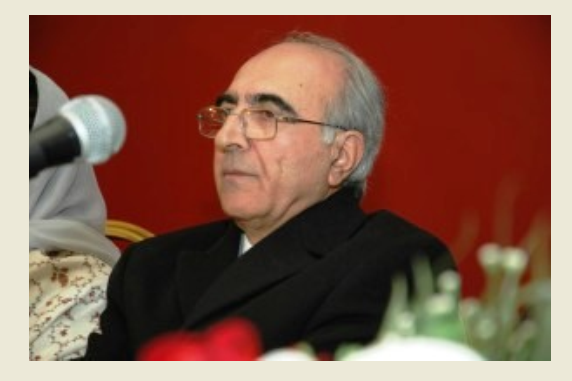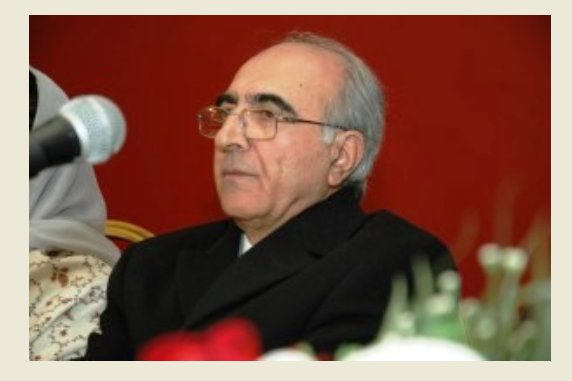
Globalization Needs a Balancing Global Movement:
Separation of Powers and Checks and Balances
(Part 4)
We need The International Peace Academy of Jerusalem, which shall be run by the UNESCO. Globalization shall not mean “McDonaldidzation” of the world. In his book, Jihad vs. McWorld (new edition: Corgi Adult, 2003), the distinguis
The wise Nathan shows us that each of us lives by the religion we have learned from those we respect. Perhaps, the father of the three sons wished to tolerate no longer in his house the tyranny of just one ring. Lessing’s leading idea is religious tolerance and universal brotherhood of mankind. For the realization of this idea hed American Professor of Political Science at the University of Maryland Benjamin R. Barber puts Jihad and McWorld in an “inescapable dialectic”-Barbara Ehrenreich, the New York Times Book Review. The term “McWorld” refers to the forces of aggressive economic and cultural globalization and the corporate control of the political process. The term “Jihad” is used to describe “disintegrative tribalism and reactionary fundamentalism.” Both tendencies, Barber argues, are undermining the fragile structures of democracy: “An American mono-culture would inflict a sad future on the world, one in which the planet is converted to a global supermarket” where people have to choose between the “local” leader of religious-cultural identity under siege and the global “Coca-Cola” (p.361). I am surprised that a high caliber American Political Scientist such as Professor Barber has decontextualized the concept of Jihad by using it in the title of his book as a marketing tool. This way, he sacrificed the truth. The sovereignty of people shall not be replaced by the corporate sovereignty in the process of globalization.
Power concentration leads to domination and clashes. Power separation and checks and balances bring about harmony, solidarity, stability, pluralism, equality, and self-determination. Humanity always needs a wise and sovereign David against a powerful Goliath. “God gave him [David] sovereignty and wisdom and taught him what He pleased. If God did not drive some back by means of others the earth would be completely corrupt.” (The Koran: Sura 2 [al-Baqara], verse 251). “Driving some back by means of others” points out to today’s system of “checks and balances,” setting power against power to ensure that the earth would not become “completely corrupt.”
Globalization shall not be allowed to produce a “one-dimensional man”- a consumer being addicted to the consumption of goods at the cost of intellectual maturity, political engagement, social responsibility, and civilizational respect (For more information on one-dimensional man, see German philosopher Prof. Herbert Marcuse’s book of the same title in 1964).
Globalization and interdependence need a participatory global order with a global movement, a movement for human polity which shall work for the collective good, a movement which teaches us to apply our skills for our collective betterment and mutual respect. We the people of the planet must become more able to organize our natural, intellectual and moral resources to establish democratic, equitable, and efficient control of our shared and increasingly interdependent life on the earth. I believe that the International Peace Academy of Jerusalem will ease the transition to the much needed balancing global movement. Unless the people of the globe have such a balancing movement, the sovereign global corporations will become the top decision-making global Goliath, a “power elite” of “overlapping” cliques at the helms of the chief political, economic, and military institutions—an invisible power concentration which debases the system of power separation and checks and balances (the “godfather” of elite theory in contemporary America, sociologist C. Wright Mills popularized the term power elite in his book of the same title in 1956). This power elite will be moving like hand in the glove (the global protectorate with nearly 200 allied states reminiscent of ancient vassals and tributaries). Currently, unlike the global corporations, the nation-states are more or less bound by the rules and norms of national and international law.
We have entered the first phase of globalization which means “the compression of the world and intensification of consciousness” (Roland Robertson). While the summits of power celebrate the globalization process, it has created rising opposition around the world, seemingly because global corporations grow fantastically richer at the cost of financial disintegration of nation-states. A balancing globalization movement shall help us to constitute a global civil society that could generate new public spheres of socio-political debate and inclusive and harmonious cosmopolitan culture which embraces the values of self-determination, solidarity, pluralism, peace, ecological sustainability, equality, social justice, intellectual maturity, consciousness of resistance (Widerstandsbewusstsein) more as an obligation than a right, and a balanced leadership mechanism. French historian and political thinker Alexis de Tocqueville (1805-1859) reminds us of the “germ of tyranny” in any regime: “God alone can be omnipotent, because his wisdom and his justice are always equal to his power. There is no power on earth so worthy of honor in itself or clothed with rights so sacred that I would admit its uncontrolled and all-predominant authority. When I see that the right and means of absolute command are conferred on any power whatever, be it called a people or king, an aristocracy or a democracy, a monarchy or a republic, I say there is the germ of tyranny, and I seek to live elsewhere, under other laws.”(Democracy in America, Vol. 1, Chapter 15). The time is critical and the need is urgent to relocate the UNESCO headquarters to Jerusalem, and to establish the International Peace Academy of al-Quds (Jerusalem).
This research paper was sent to: UN Secretary General, Secretary General of Islamic Conference, Secretary General of Arab League, European Union, several leaders of Middle Eastern countries…, and many intellectuals and scholars.



